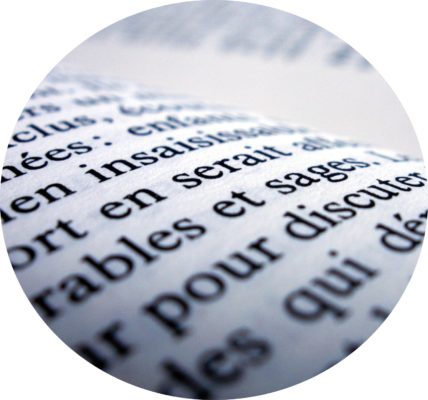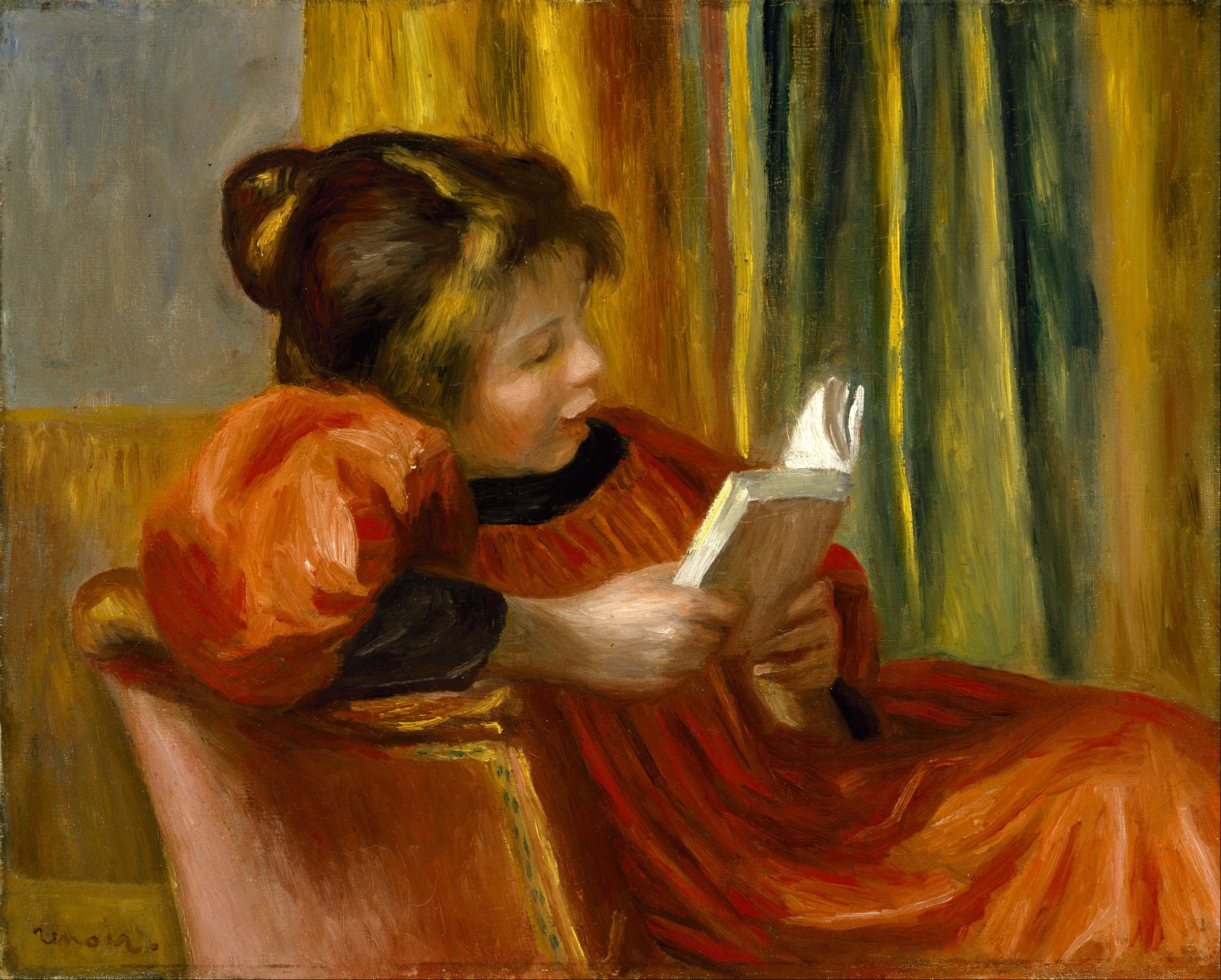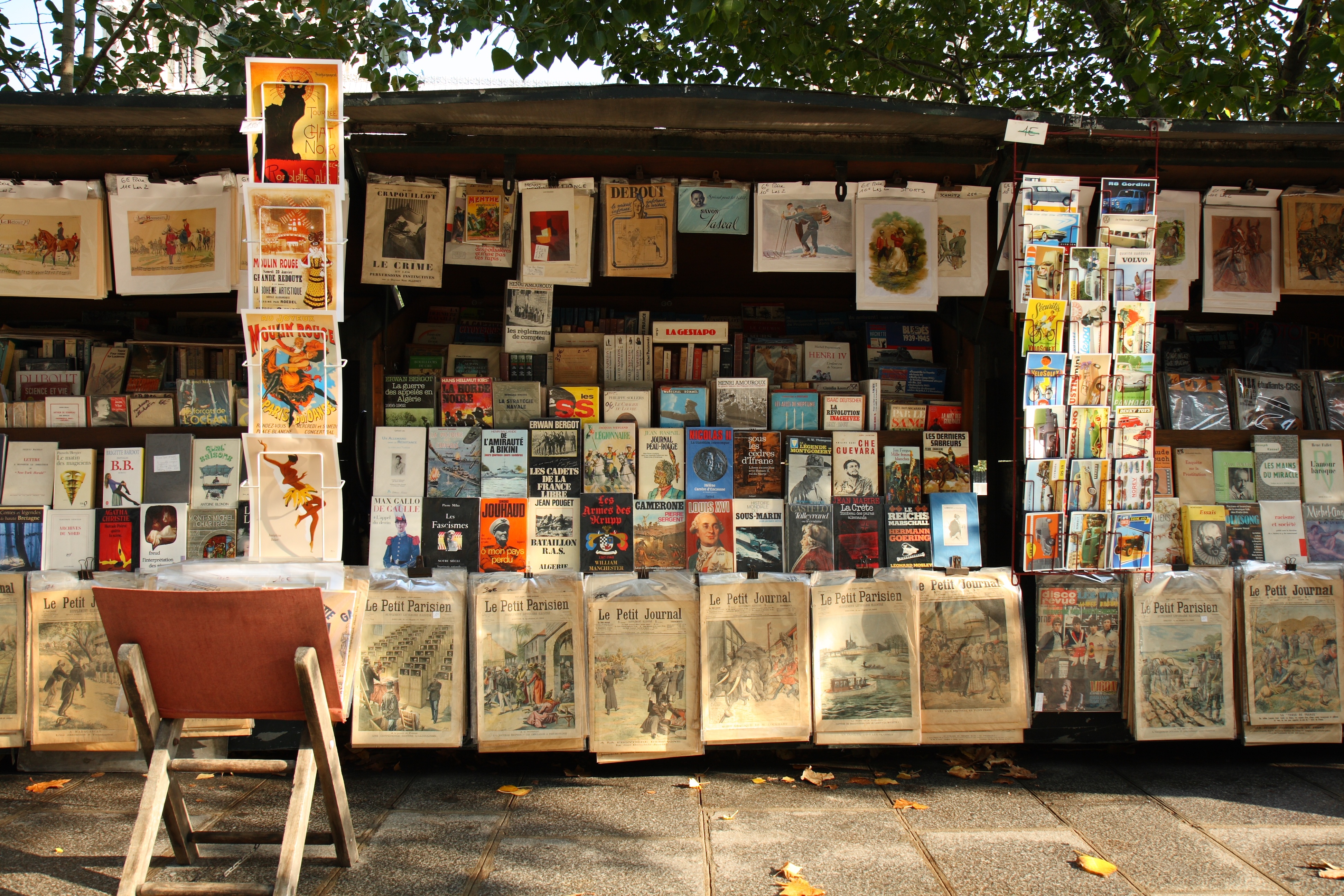Take a leaf out of my book – read en français!

To improve our French, we are often told to read en français. Yet, what if there are other reasons to delve into the world of French novels, that outshine this need to improve our linguistic skills?

Reading en français can be a challenge for a non-native speaker, a true ‘reading rollercoaster’ of ups and downs!
As MyFrenchLife™ Contributor Sue Williams noted when buying a copy of Baudelaire’s ‘Les fleurs du mal’ in Paris: “I had a mental image of myself, looking terribly intellectual, turning its brownish pages, while sitting at a cafe.” Like Sue, by reading en français, we want to look as intellectual as the lecturers we see around Paris, as captured in Reading in Paris by photographer Virginia Jones.
But as we all know, it’s not always this easy.
However, now’s the time to rise to the challenge, and become à l’aise with the universe of French literature and start reading in French.
Overcoming difficulties and challenges
You won’t understand everything! The main drawbacks are frequently needing a dictionary and having a slower reading speed. This leads to many of us feeling demotivated and to think that it will be impossible to get hooked on a book.
A way to overcome this difficulty is to be proud of how much you read and to avoid looking up each and every word.
Concentrate on meaning: the words and expressions that affect your understanding are those that need looking up, writing down and learning!

The site FrenchTogether offers tips on improving your reading level quickly with apps and online sources.
Another tip to adapt yourself to French is to swap your phone for a book.
After living in France with high phone tariffs, I swapped spending my free time texting for reading library books. Reading on trains, in lunch breaks, and at bus stops will help your brain get used to the language you’re reading, little by little, and without the need of a dictionary.
You’ll soon find yourself feeling proud of how much you are able to read en français without a dictionary!
Where to find your French reading material?
Well, if you’re lucky enough to have a library nearby which stocks books in French, they can be a great help to find interesting books that are geared towards your level. Try the list by
You can also try the list by FluentU of ’10 Unbelievably Good Books for French Learners’, it’s a really useful post which will give you a good place to start.

Of course, you can also, take the advice of MyFrenchLife™ who recommends reading whatever you enjoy: from cookbooks to fashion magazines, sports to current affairs; choose the reading matter that reflects your interests and this will make reading in French feel much less of a challenge.
Why should you read en français?
 Becoming a lecteur ou lectrice en français will open a world of beautiful French imagery and a language of poésie that cannot be translated word for word.
Becoming a lecteur ou lectrice en français will open a world of beautiful French imagery and a language of poésie that cannot be translated word for word.
Poetic elements like the use of sound, sibilance, and personification may all be lost in the English translation. You will also discover books that may not have English translations, as well as books that are translated from other languages into French.
This will give you excellent topics for conversations with other book lovers and bookshop owners, due to your wide reading!
The feeling of accomplishment after finishing an entire novel in another language is wonderful, especially after all the challenges us non-native speakers have. You will be made aware of (maybe without realising) cultural references to France and its history, to French authors and their imagery – giving an insight into la vie française, and a true, authentic voice of French culture.
All books have voices – it’s about listening to a French one. It’s not just about improving your language skills, it’s about culture, it’s about the way books make you feel.
Do you read en français? Let us know what you are reading in French, and share this article with fellow Francophiles!
Image Credits:
1. ‘Fashion reading in the park’ by Raphaël Labbé, via Flickr
2. ‘Book page open book reading French’ by Calua, via Pixabay
3. ‘Girl reading’ by Pierre-August Renoir, via Wikimedia Commons
4. ‘Bouquiniste Paris’ by Benh Lieu Song, via Wikimedia Commons
5. ‘Pile of books’ by Raoul Luoar, via Flickr







I completely agree with “read what you enjoy.” I like to follow politics, so read Le Monde online, especially their political coverage.
I also spend part of the year in Provence and have fallen in love with the books of Marcel Pagnol, many of which are set here. These books hold a special place in the hearts of the Provençaux. More than once I have mentioned one of Pagnol’s books to a friend here and had lines from the book quoted back to me!
Hi Keith I’m so glad you agree!!! I think there’s nothing worse than forcing yourself to read anything you don’t enjoy…there’s no passion at all then!
I do exactly the same as you with regards to Le Monde, it’s brilliant at the moment for the elections! I haven’t read any of Marcel Pagnol, but I think I really ought too!!! I’ve spent my year in the North and have been really hooked to Proust…it’s a bit of a challenge but then then I’m told the best things are!
I am quite fluent in French but of course there are lots of words and expressions I don’t know just as there are words in my own language that I have to look up. I keep dictionaries on my cell phone and open up the one for French to English when I am reading in French. I don’t look up every work or expression I come across, only those that seem to be crucial to understanding the text. If a person or noun has 3 or 4 adjectives describing it and I understand most then I can assume the one I don’t know is probably in the same vein, e.g. 3 words describing good characteristics of a person or noun out of 4 that I understand, I assume the fourth unknown one is also positive unless it is preceded by “mais” (but) thus assuming an opposite meaning. If you understand the overall gist of the passage then don’t worry too much about all the words. You will gradually pick up meanings over time. Read topics you would read in English or whatever your native language is. I read a lot of history, biography and world affairs in English and so do the same in French. I also have an English language book on the go so I can switch over to it when I have read enough of the French book for a session.
Hi Michael!
I agree with you, there are always going to be expressions that we need to look up, but looking up EVERYTHING would become a lengthy task when faced with a 300 page novel! I really like your technique too. I often find myself thinking “Gosh as a language learner I should be looking all of these words up, writing them down for learning” but with a novel it’s just not the same, you want to be hooked into the story I think!
I do the same as you, I have a few French books on the go at the same time – especially with Proust, I always need a break! I think reading what you normally would in English is also a really good tip. We learnt through translation modules at university that you become your own “mini expert” in certain areas, that is to say that you understand the specialist vocabulary for example in history and affairs, in both languages in the end. This will really help when reading in French, as you won’t need to necessarily define the term when you’ve found it in English!
Hi Jessica
Wow I love what you say here: “We learnt through translation modules at university that you become your own “mini expert” in certain areas, that is to say that you understand the specialist vocabulary for example in history and affairs, in both languages in the end. This will really help when reading in French, as you won’t need to necessarily define the term when you’ve found it in English!”
I particularly love that concept because unlike in ‘Anglo’ countries, in France you don’t ‘exist’ unless you 1) have an opinion, 2) can express that opinion clearly and importantly 3) you can defend that opinion!
So, if you read deeply in the areas which are your natural areas of interest and specialisation then you will be far more likely to be able to do this.
Nice tip reinforcement Jessica – merci
Judy
Hi Judy!
Thank you so much! I think it’s definitely true, read what you enjoy and read what you know about! The two often go hand in hand! Then you find yourself branching off into other subjects through what you read, or through recommendations of other readers!